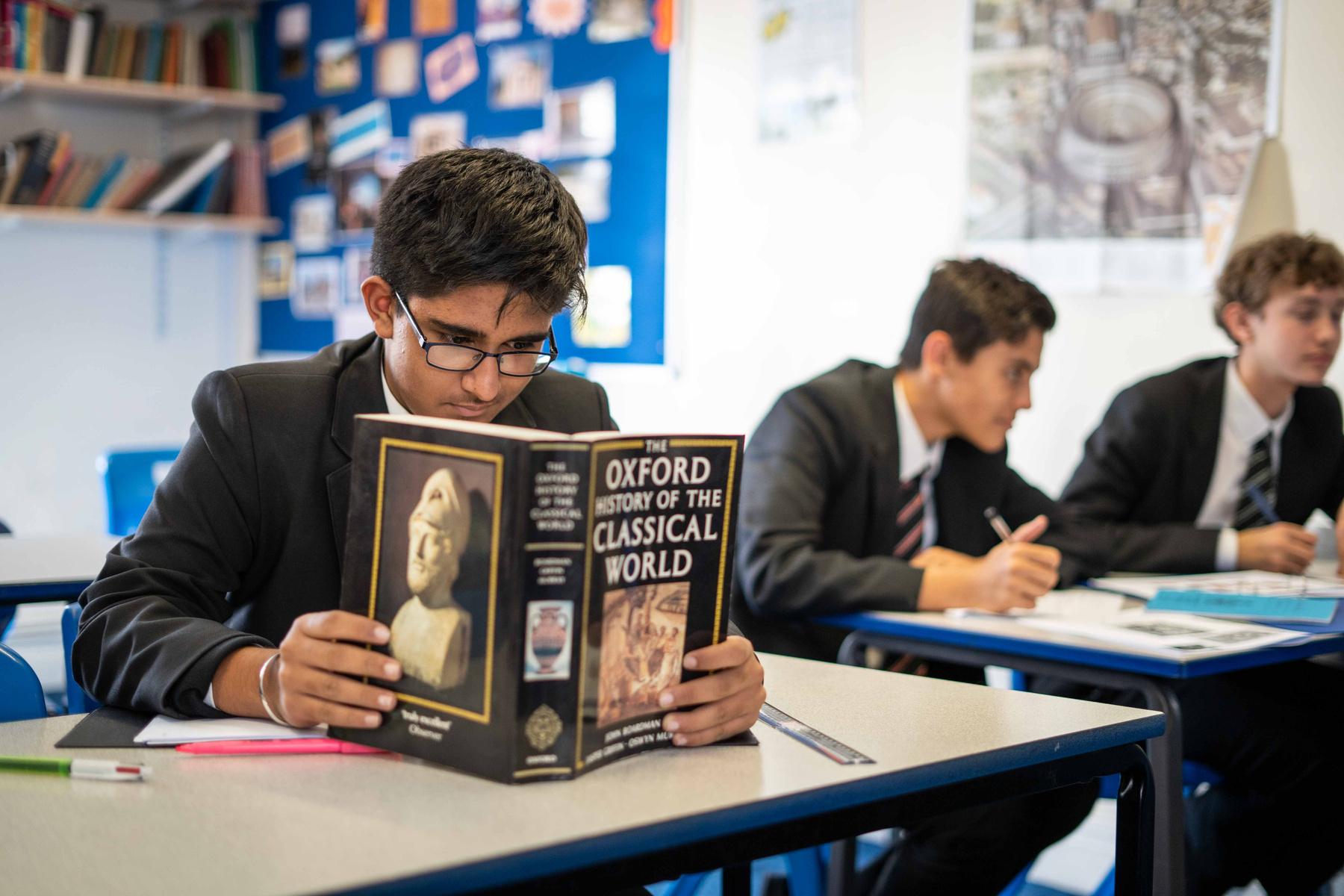
2 minute read
Classics
The Classics Department offers GCSE courses in the study of Latin, Classical Greek and Classical Civilisation. Latin and Greek involve study of the ancient languages whereas Classical Civilisation involves learning about the Greeks and Romans entirely in the medium of English In order to take Greek and Latin for GCSE, boys are required to have studied these subjects in Year 9 but Classical Civilisation may be taken afresh in Year 10. Boys taking Greek often study Latin as well, but this is not a necessity.
Why choose a classical subject?
Advertisement
Although they are not directly vocational subjects, Classics continues to be respected by a wide range of employers, albeit in the more ‘traditional’ careers. The general consensus among universities and employers is that study of Classical subjects produces versatile minds and the intellectual skills acquired through study of them are numerous, diverse, and difficult to come by. One suggestion as to the appeal of Classics to employers can be found in the Times: “It’s quite an unusual choice I suppose it implies that the person is quite interesting, that they have followed their interests and done something off the beaten track. I think employers look on that favourably.” (a spokesman for Milkround Graduate Recruitment)
Greek
The point of learning the language is quite simply that what the Greeks wrote is still eminently worth reading. The course is therefore directed towards reading and comprehension, and for the GCSE examination two settexts are studied which introduce pupils to literary masterpieces by the likes of Homer, Herodotus and Plato The quality of what the Greek world produced – in drama, philosophy, history, art, architecture etc. – is exceptional, and that the study of it is of equally great value. Students experience elements of the culture, language and social life of the Greek civilisation which has inspired many later generations. Knowledge of the Greeks’ achievements is a tremendous help to an understanding of European culture in general; according to Keats, “we are all Greeks ”
The GCSE consists of three papers – one language and two literature papers. A prescribed vocabulary list of just over 350 words needs to be learned for the language papers; it tests memory skills and expands knowledge of English vocabulary, particularly scientific vocabulary, which is largely derived from Greek. Students detect similarities between Greek and Latin and studying both languages in tandem reinforces their awareness of grammar and syntax. The freer, more nuanced Greek requires sensitivity to language, style and tone; it encourages creative thinking within strict parameters.
Greek caters for a single set of boys who are sound linguists and have an interest in the classical world. Mastering this language is an impressive indication of academic ability and the sheer rarity of this subject also marks out students to future employers. Standing out from the crowd is a definite advantage in the current educational climate.

In 2019, the five boys taking both Latin and Greek gained four grade 9s and two grade 8s between them.








